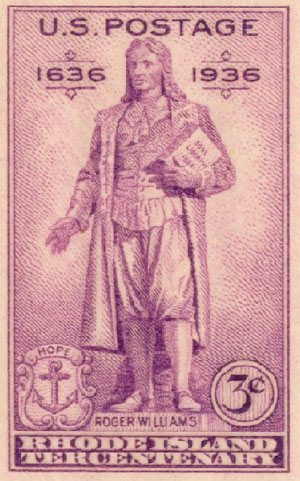Preaching Against Puritan Doctrine
Like many English Puritans, Roger Williams came to Massachusetts as part of “The Great Migration”, the Puritan departure from England and arrival in the new world. When Williams arrived, however, he realized that the Puritan church had not severed all of its ties with the Church of England, and hence, was not pure enough. For this reason, he refused to fill the position of minister in the church of Boston. Williams became even more controversial when he declared the colony’s charter or land-grant invalid because it was not issued by the true owners of the land - the Indians. Williams soon moved to Salem and generated even more controversy by preaching against the taxes that paid church expenses and laws that made attending church mandatory.
Separation of Church and State
Despite his Puritan ties, Williams’ own intolerance of the rules, laws and customs of the Puritans caused him, incidentally, to preach for religious tolerance. He argued against the Puritans laws that controlled the populations. He was one of the first to call for the separation of church and state - a law which now forbids the government to use any religion to influence the people.
The Founding of Providence
The intolerant Puritans often made a point to suppress individuals with divergent views. They feared people like Roger Williams could influence the people and ultimately threaten the church. In the fall of 1635, they voted to banish him. Before the henchmen reached his home, however, Williams ventured off himself toward Narragansett Bay in January of 1636. After many weeks of traveling through the wilderness of New England, Williams purchased land from the local Indians and founded the town of Providence. Williams devised a compact that allowed all residents to vote regardless of their religion. Furthermore, he encouraged religious sects unpopular with the church to settle in Providence. In March of 1644, Williams did receive a charter from the English Parliament. Under his charter of 1647, Providence, Newport, Warwick, and Portsmouth united to eventually form the colony of Rhode Island.
Roger Williams Articles and Activities
13 Colonies People and Founders


